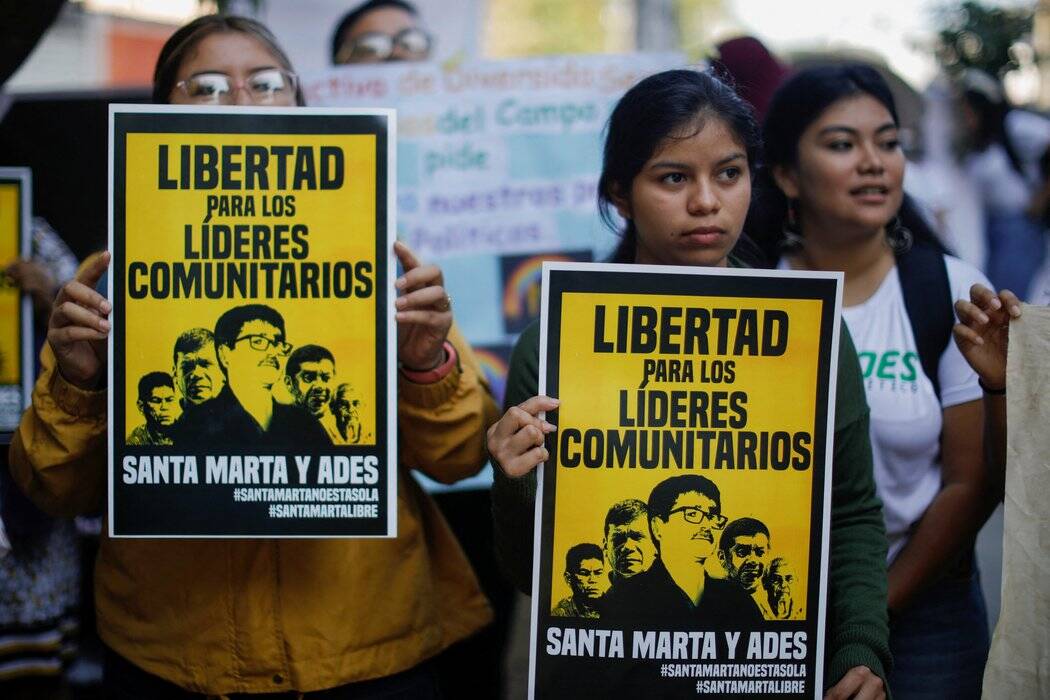A new trial against five Salvadoran environmentalists, accused of murdering a woman in 1989 during the civil war, will take place on Tuesday, announced the NGO they belong to, denouncing the case as a form of “persecution” for their anti-mining activism.
The environmentalists, who were guerrilla fighters at the time of the crime, were acquitted on October 18 along with three other former rebels also accused of the murder. However, a higher court overturned the ruling and ordered a retrial.
Prosecutors accuse the eight of killing María Inés Alvarenga in August 1989 in the town of Santa Marta, allegedly because they believed she was an “army informant.”
“The case is criminalization and persecution of environmental activism (…) they are key figures in the community resistance against metal mining,” said Alfredo Leiva, a board member of the Santa Marta Association for Economic and Social Development (ADES), during a press conference.
The five environmentalists helped push through the 2017 ban on mining, which was repealed last December by the pro-government Congress at the request of El Salvador’s president, Nayib Bukele, who supports gold mining operations.
The hearings, scheduled to last three days at the Judicial Center in the capital San Salvador, will be held in absentia as the whereabouts of the eight former guerrillas are unknown.
The accused who became environmentalists after the civil war (1980–1992) are Teodoro Pacheco, Saúl Rivas, Alejandro Laínez, Miguel Gámez, and Pedro Rivas. “The only ‘crime’ these environmentalists committed is defending water, the environment, health, and the lives of present and future generations, which are now seriously threatened by the revival of metal mining,” said Leiva.
The other three accused are former commander Fidel Recinos and fellow ex-guerrillas José Sancho and Arturo Serrano, members of the leftist Farabundo Martí National Liberation Front (FMLN).
Leiva stated that “there is no evidence” against the environmental leaders and that the prosecution’s case relies on a “contradictory account” from a suspect who is a “protected witness.” El Salvador’s civil war ended in 1992 with the signing of peace accords. The conflict left 75,000 dead and more than 7,000 missing.
In 1993, Congress approved an amnesty law that pardoned wartime crimes, but in 2016 the Supreme Court ruled it unconstitutional.






